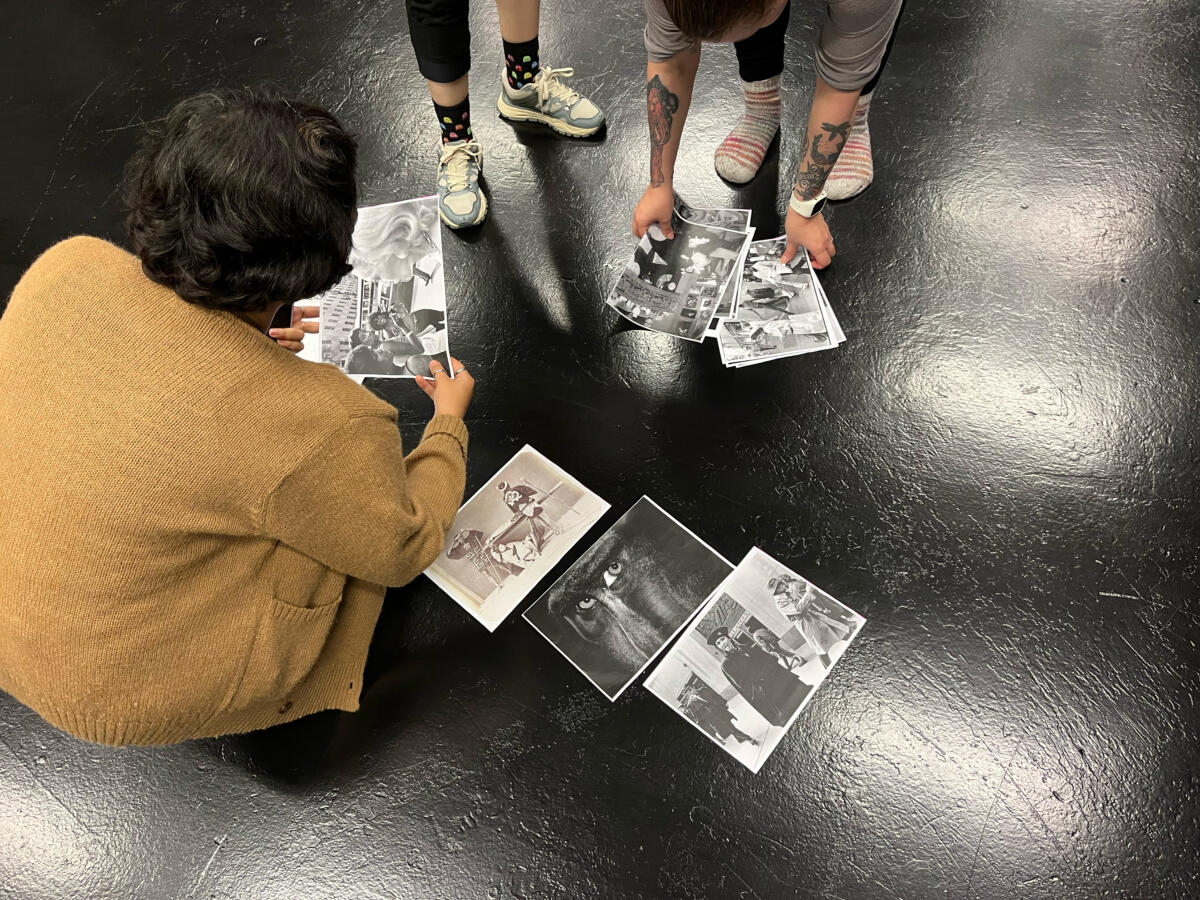Who am I? Where am I? Where am I going?
Xiaole Wang started studying at LAPS in 2023. Since she arrived at Uniarts Helsinki, the cultural and contextual differences have been obvious. This article presents some thoughts and reflections on encountering cultural differences.

— How I encounter another culture
I’m Xiaole, and I started studying in LAPS from 2023. I’m from China, and I’m one of the few East Asian faces in the school. Since I arrived here, the cultural and contextual differences have been as obvious as my face. It doesn’t really matter, but it exists, prompting some thoughts and reflections.
Firstly, there’s the matter of English, the most obvious manifestation of cultural encounters at the beginning level. Two fragments were particularly impactful for me. Initially, I felt quite frustrated due to my English level. The knowledge I was proud of and my language sensitivity were all obscured by my low proficiency in English. I used to be someone who could communicate fluently, but here, I became the opposite—a person who slowed down communication. I felt both sorry and somewhat shameful for repeatedly asking for explanations. When I expressed this to my classmate George, apologizing for creating communication difficulties because of my English, they questioned why I felt sorry, stating that nobody even apologized for forcing me to use English despite my first language being spoken by the largest population. I also discussed this with my professor, Tero. When I mentioned I couldn’t read English materials quickly, his initial reaction was that if I could find a Chinese translation, I could read that instead. In my previous education, I had always been encouraged to read original works or their English versions to accurately grasp content and keep up with academic trends. Both my classmates and Tero, who are not native English speakers, triggered me to rethink my relationship with English and its role. Is it merely a global communication tool or a tool of linguistic colonization? Although I don’t believe that the experiences I’ve had will significantly change this practice, I would have a different consciousness, enabling me to rediscover ways to maintain independence when encountering and immersing myself in another language and culture.
Secondly, there’s the issue of victim mentality. I must admit I never thought about it before, it’s a new concept for me since arriving. I feel it’s part of a broader discussion on how to position myself as a migrant artist from a third-world country. As a young woman, a non-white person from East Asia, I have many labels associated with diversity groups or a subaltern perspective. If I discuss my experiences, it’s easy to fall into the trap of victim mentality. But how much do I want to maintain that? It’s true that I’ve lost my context and audience in a new environment, and I have to find my own way to position and present myself in this new situation. It’s somewhat unfair that only subaltern people have to examine themselves to avoid falling into victim discourse, while privileged individuals don’t face these difficulties.
Lastly, there’s the concept of the disappeared standard. Compared to the environment I was in before, here is a place where almost everyone focuses on themselves, and everyone respects your right to be yourself. Even in the educational institution, the theatre academy, there are no grades after each course, only pass or fail. Since everyone is on their own journey, it’s challenging to compare, and it doesn’t make sense to compare oneself to others. On the path to self-discovery, this also provides an opportunity to rethink and redefine “success,” “hardworking,” etc. I’m not sure if it’s a false proposition or not. It can be a practical way activated by artists to counter the capitalistic goal of better efficiency. However, somehow the standard or comparison definitely still exists, as the limitation of resources, whether funding or residency, means that many people try to apply. This sometimes creates feelings of confusion and being lost, but it also opens up new possibilities.
For me, studying in LAPS is not just about being in school, it also signifies my encounters with different cultures. Communicating with my classmates and alumni from various backgrounds worldwide has given me more perspectives to navigate the world.
Xiaole Wang
When performance
The master’s programme in Live Art and Performance Studies (LAPS) was launched in 2001 as a Finnish-language degree programme, Esitystaiteen ja -teorian koulutusohjelma. Since 2013, LAPS has been an English-language, international and residential MA programme based in Helsinki. The objective of the programme is to enable artists coming from different environments, classes, cultures and upbringings to focus on their work, develop their research and map out the future of their artistic practice. This blog discloses the various aspects of the LAPS programme, from individual notions and statements by students to providing background for LAPS MA thematic interests.
Learn more about the LAPS programme
Latest posts
Follow blog